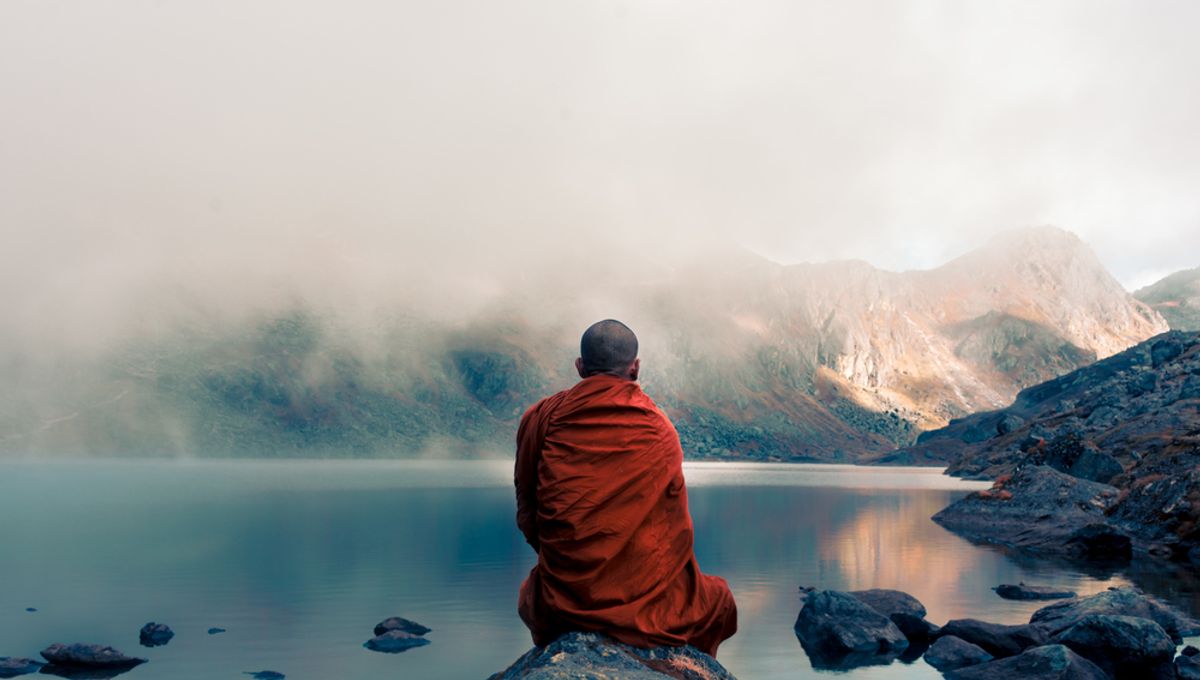
Buddhist monks who practice deep meditation on a daily basis may have a healthier microbiome than non-meditators, according to a new small-scale study. After analyzing the gut bacteria of 37 monks from three temples in Tibet, the study authors found that the devotees had higher concentrations of several beneficial strains than their secular counterparts.
“Tibetan Buddhist meditation, known to originate from ancient Indian Ayurveda, can be defined as a form of psychological training,” explain the researchers. “This practice is known to exercise the mind and allows self-regulation of the body to cultivate well-being and provide insights into the true nature of all phenomena.”
Numerous studies have highlighted the potential of meditation and other mindfulness practices to improve psychological and physical health, yet the mechanisms underlying these benefits are not fully understood. Given the importance of the gut-brain axis in regulating mood, immune function and the nervous system, the study authors decided to investigate how the intestinal flora of Buddhist monks differed from that of non-religious individuals.
After comparing the monks’ fecal samples to those of 19 secular residents from the same region, the researchers found that “the intestinal microbiota composition in the meditation group significantly differed from that of the control group.”
For example, monks had considerably higher levels of Prevotella bacteria, which have previously been shown to be more abundant in healthy individuals than in patients with major depressive disorder. Bacteroides, meanwhile, have been linked to decreases in anxiety and addictive behaviors, and were considerably more plentiful in the samples provided by meditators than those of non-practicing individuals.
Other strains that were elevated in the monks’ guts include Megamonas – which influences a wide range of psychocognitive traits – and Faecalibacterium, which has been shown to be significantly reduced in anxiety sufferers.
The researchers say that these alterations in intestinal flora may activate protective anti-inflammatory pathways and lead to improved metabolism in regular meditators. After analyzing the blood plasma of all participants, the study authors also found that markers of cardiovascular disease risk – such as cholesterol and apolipoprotein B – were significantly lower among monks.
“The microbiota enriched in monks was associated with a reduced risk of anxiety, depression and cardiovascular disease and could enhance immune function,” write the researchers. “Overall, these results suggest that meditation plays a positive role in psychosomatic conditions and well-being.”
All of the Buddhist practitioners included in the study had been meditating for a minimum of two hours a day for between three and 30 years, leading the authors to conclude that “long-term deep meditation may have a beneficial effect on gut microbiota, enabling the body to maintain an optimal state of health.”
The study has been published in the journal General Psychiatry.
Source Link: Buddhist Monks Meditate Their Way To Healthier Gut Bacteria